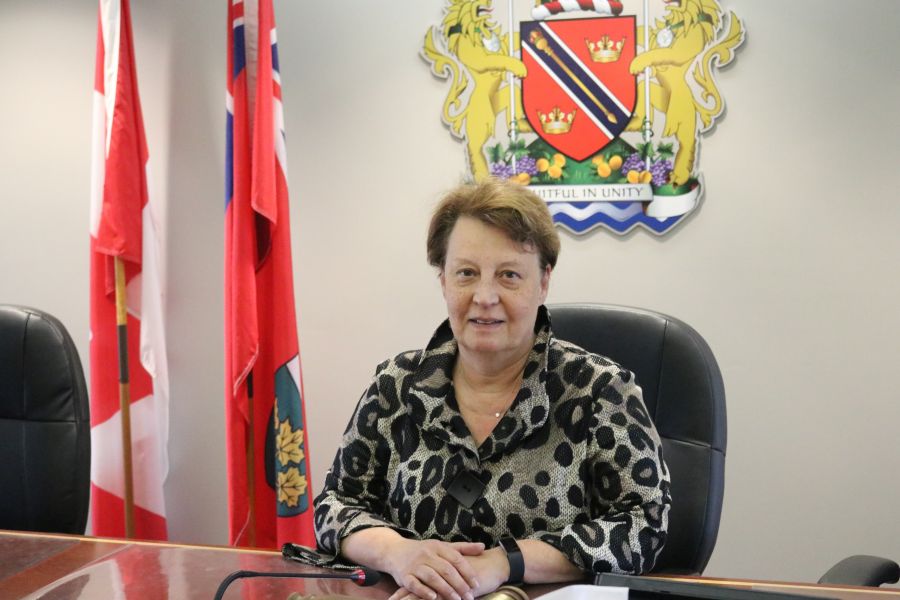Although the Town of Niagara-on-the-Lake doesn’t have an official whistleblower policy, Lord Mayor Betty Disero says there are mechanisms in place to protect town employees who have concerns of any wrongdoing conducted at the town.
“I’m all for protecting whistleblowers,” Disero told The Lake Report. “No one goes after whistleblowers in this administration.”
Disero said town employees can take their reports to the town’s human resources generalist Sarah Stevens who will then report to the chief administrative officer.
Whistleblower policies, used by various governments, agencies and companies, are aimed at protecting individuals who report any illegal, unethical or fraudulent misconduct while acting in good faith.
Several Niagara municipalities have already adopted whistleblower policies or are contemplating doing so. Last week, in the aftermath of the Ontario ombudsman’s report on the Region of Niagara’s major ethics scandal, regional council directed staff to draft a whistleblower policy.
“Politically, I guess it’s a good thing to do but if the staff feel they’re covered, in practice, we’re doing it now,” Disero said regarding the Town of NOTL.
“There are mechanisms in place that if somebody has some concerns about anything they think is illegal that’s going on or offensive, they can go see Sarah Stevens. And Sarah has a process … that they can talk about.”
Stevens couldn’t be reached for comment but Disero said she spoke to Stevens about how such complaints are handled. After their meeting, Disero advised she will discuss the whistleblower idea with other council members.
Town staff are covered by internal policies such as Workplace Harassment Policy which deals with staff wellness, complaints and issues related to Bill 168, said the town’s community engagement co-ordinator Lauren Kruitbosch.
Bill 168, also known as the Occupational Health and Safety Amendment Act (Violence and Harassment in the Workplace), aims to protect workers from violence and harassment at the workplace.
The town also has a code of conduct which applies to lord mayor, councillors and to members of all town committees, agencies, boards and commissions.
The 18-page document states that if a member makes a complaint, other members, “shall not act in reprisal or threaten reprisal against a person who makes a complaint or provides information to the integrity commissioner during an investigation.”
“Members shall interact courteously and respectfully with the Integrity Commissioner and with any person acting under the direction of the Integrity Commissioner,” the bylaw states.
The current code of conduct was updated in 2018. The town’s current integrity commissioner, Edward McDermott of ADR Chambers Inc., was appointed by council in March 2018.
McDermott declined to comment on the matter.
“Such matter is not within his mandate or jurisdiction as Integrity Commissioner for Niagara-on-the-Lake and it would be inappropriate for him to comment on this issue,” was the email response from the commissioner’s office to The Lake Report.
The earlier four-page version of the code didn’t have a comprehensive list of definitions, didn’t mention conflicts of interest, improper use of influence nor penalties for not following the code.
The town’s previous integrity commissioner Suzanne Craig recommended making amendments to the old code of conduct at the council meeting in July 2015.
The updated bylaw has also provided a more detailed guide for dealing with gifts and benefits as well as confidential information.
The bylaw states members of council shall treat all members of the public, one another and staff with respect and without abuse, bullying or intimidation. Councillors shall avoid both pecuniary and non-pecuniary conflicts of interests and shall not use the status of their position to influence of another person to the private advantage or non-pecuniary interest of themselves, their friends or family members.
If the commissioner decides there’s been a violation of the code of conduct, council may reprimand a member or suspend remuneration for 90 days. Council can also require that a member provide a written or verbal apology, return property or make reimbursement of its value or of money spent, be removed from or not be appointed to the membership or as chair of a committee of council.
According to the town’s website, members of the public, town council and other town employees can file a complaint by following the Complaint and Investigation Protocol and including the Consent and Confidentiality Agreement Form with the affidavit.
The town’s integrity commissioner doesn’t have authority over town employees and anonymous complaints cannot be accepted by the commissioner.
“Should a member of staff wish to report a councillor violation of the code of conduct, that would be handled through the integrity commissioner,” Kruitbosch said in an email response to The Lake Report. “Councillors wishing to report staff would speak to the Lord Mayor and CAO. The CAO would be responsible for employee relations.”
“This is case-specific. Depending (on) the complaint, the individual may remain anonymous,” Kruitbosch said.
Ontario ombudsman Paul Dubé, whose report on the serious ethical problems in Niagara’s regional government, was released a few weeks ago, wasn’t available for comment.
However, the office’s director of communications, Linda Williams, issued a statement saying, “While the ombudsman has always encouraged municipalities to have robust internal mechanisms to promote transparency and accountability, I don’t believe we have done an investigation where he commented specifically on whistleblower policies.”
In the City of Toronto, employees may remain anonymous when reporting alleged misconduct, according to the city’s Disclosure of Wrongdoing and Reprisal Protection provision.
According to Toronto’s bylaw, wrongdoing may include fraud, theft of city assets, breach of public trust, mismanagement of city resources, and violations of the city’s conflict of interest provision.
A number of municipalities across the Niagara region have also moved forward with developing whistleblowing policies.
At its meeting on Dec. 12, Niagara regional council approved directing staff to prepare a report with recommendations and a draft whistleblower policy.
Fort Erie Mayor Wayne Redekop, who brought the motion forward, said he hopes all area municipalities will adopt this type of policy. In November, Fort Erie council approved a whistleblower policy.
“We owe an obligation to our employees to ensure they’re protected in the event they see something that’s not right,” Redekop told regional councillors.
Welland Regional Coun. Pat Chiocchio said he hoped the policy would have been brought forward a long time ago, but commended Redekop for doing so.
“I’m hoping this will stop the workplace harassment that’s taken place in the past,” he said at the meeting.
Lincoln Mayor Sandra Eastman told councillors the town is also working on developing a policy.
Welland passed a whistleblower policy in 2012.
Hamilton also has a whistleblower policy that protects city employees who report misconduct from job-related reprisals, such as dismissal, suspension, discipline, harassment, demotion, denial of a benefit of employment, and other disadvantaging.
In August, Grimsby’s council passed a motion to direct staff to prepare a report on a whistleblowing policy.
“The municipal council of the Town of Grimsby fully supports whistleblowing and is committed to protecting whistleblowers, the important information they provide and more widely, the integrity of the whistleblowing processes,” the motion said.
Niagara Falls’ council has unanimously – with only Coun. Victor Pietrangelo absent for the vote – passed a motion directing staff to prepare a report on a whistleblowing policy during a council meeting in August.
In St. Catharines, city council voted in September to have staff review the city’s current whistleblower policy and decide whether there is a need for a bylaw.
Some guidelines for effective whistleblower policies.
Protection for public servants
In Canada, the Public Servants Disclosure Protection Act provides protection to public sector employees making disclosures in good faith and prohibits reprisals against them.
The Criminal Code of Canada, section 425.1, states that employers should not take disciplinary measures, demote, terminate or adversely affect the employment of an worker to refrain or punish them for disclosing information to federal or provincial law enforcement about wrongdoing. This code section only protects people who report to law enforcement and not those who disclose information to media sources or any other outside agencies.
The public sector integrity commissioner is also empowered to investigate complaints of wrongdoing and reports of reprisals.
The Ontario Securities Commission launched a program in 2016 that allows people to report serious securities- or derivatives-related misconduct. Eligible whistleblowers may also receive up to $5 million.
The OSC also encourages whistleblowers to report violations of Ontario securities law in the workplace through internal reporting mechanisms.
Transparency International
In its 2013 “International principles for whistleblower legislation,” the Berlin-based, non-government organization Transparency International outlined three key principles of an effective whistleblowing mechanism: accessible and reliable reporting channels; robust protection from all forms of retaliation; and mechanisms for disclosures that promote reforms that correct legislative, policy or procedural inadequacies and prevent future wrongdoing.
Whistleblower regulations and procedures should be “highly visible and understandable,” maintain anonymity, ensure timely and independent investigation, and have transparent mechanisms to follow up on complaints.
Acting in good faith
According to the G20 Anti-Corruption Action Plan Protection of Whistleblowers, the main requirement for whistleblowers is that they should act in good faith and on reasonable grounds.
Whistleblower laws should also protect against retaliation and provide anonymity and confidentiality, the G20 plan says.
To avoid loopholes, it should determine whom to cover and identify the scope and breadth of subject matter.
The policy may also impose criminal and civil liability if employees disclose official secrets or information regarding national security, the report says. The policy may also protect against libel and defamation suits, and use incentives to encourage reporting misconduct.











